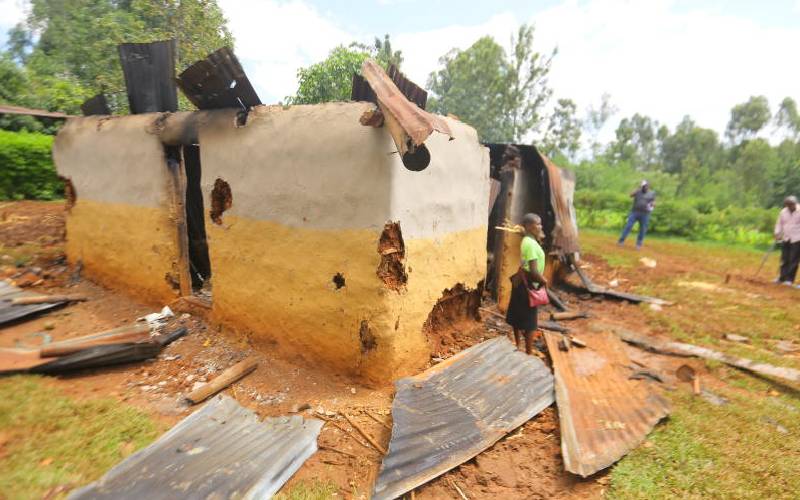×
The Standard e-Paper
Smart Minds Choose Us

A house of one of the grannies who were hacked to death after being suspected to be a witch at Marani in Kisii County. [Sammy Omingo, Standard]
About two weeks ago, a video emerged on social media of a woman pleading with a machete-wielding man to spare her life. Her attacker paid no heed to her pleas and minutes later, the granny had been slashed to death, and her body set ablaze as dozens of villagers watched.